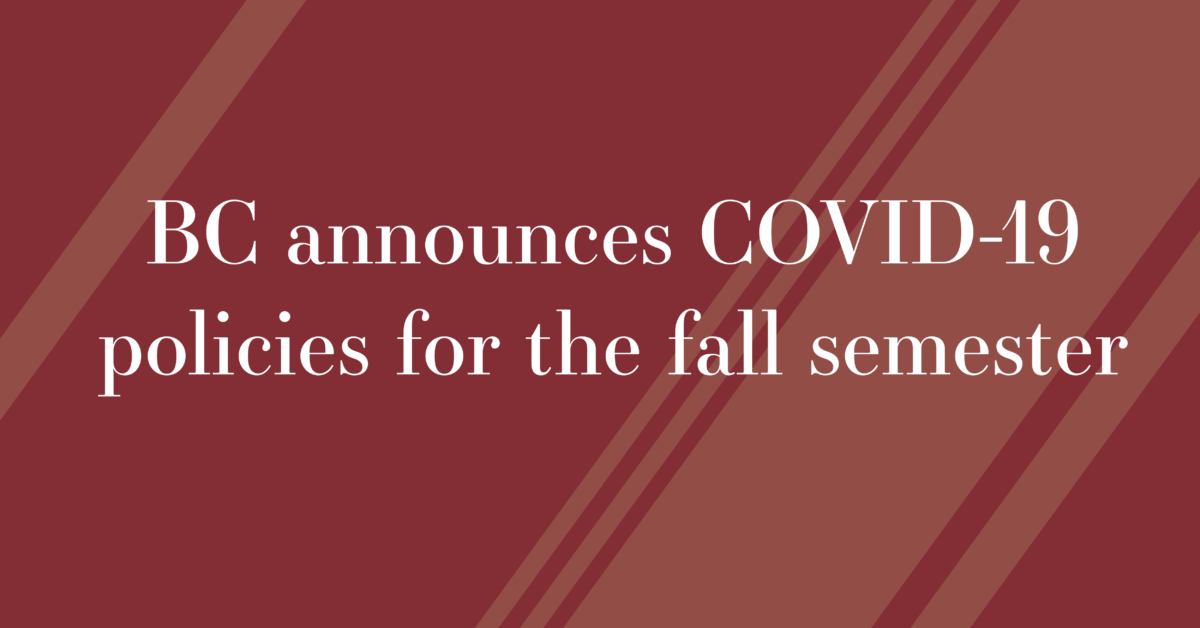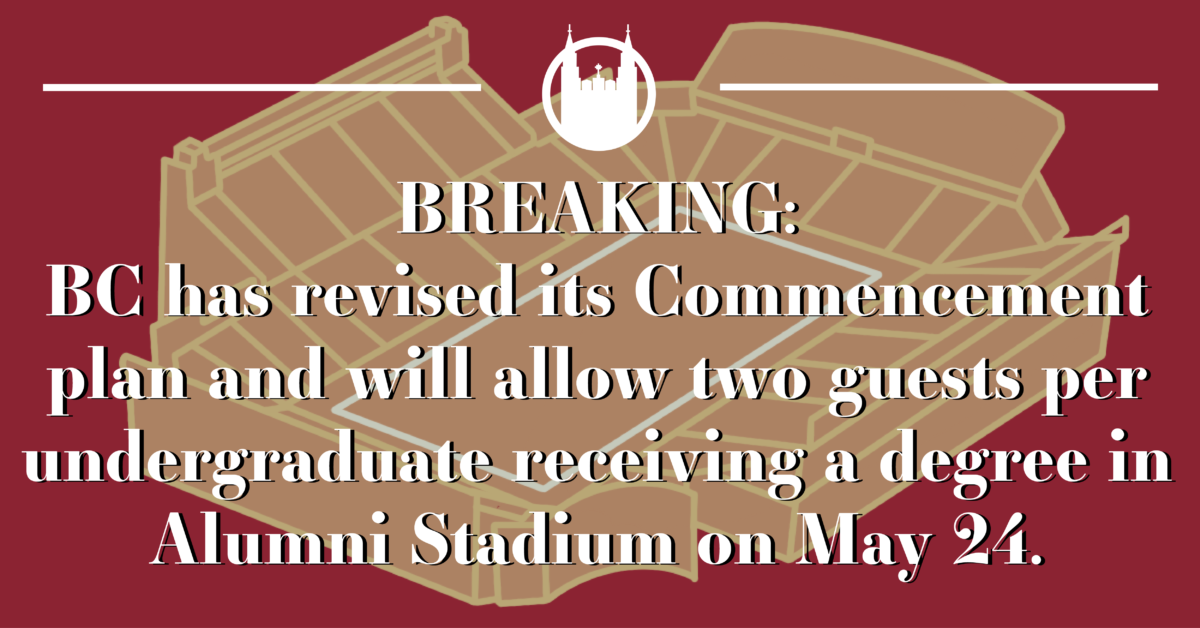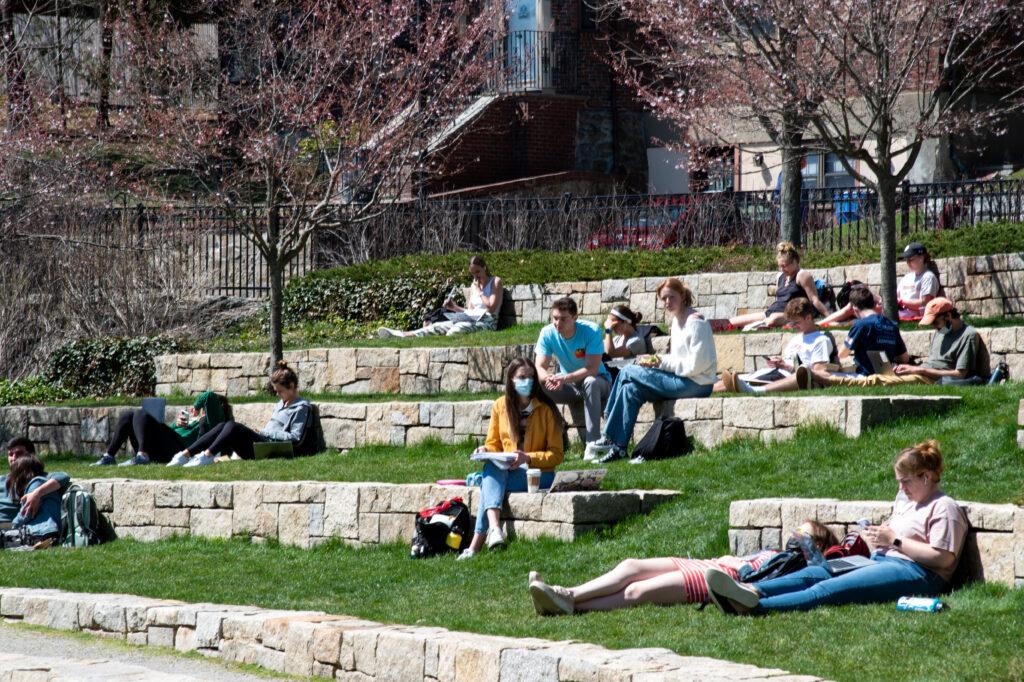Since returning home to Anaheim, Calif., Jesse Aguirre, MCAS ’23, has had to adjust to an abrupt change in his academic schedule. The three-hour time difference between California and Massachusetts, turning his Aguirre’s 9 a.m. classes into 6 a.m. sessions, has had a direct impact on his academic performance, Aguirre said.
Since Boston College’s decision to suspend in-person classes and transition to remote learning, international, West Coast, and returning abroad students now face class times and office hours sometimes held early in the morning or late at night. Some professors who have opted to hold live class sessions are offering accommodations to students in different time zones, such as making deadlines time zone-specific and recording and uploading their lectures to the Panopto video platform on Canvas.
The Center for Teaching Excellence (CTE), Center for Digital Innovation in Learning, and Information Technology Services have assisted professors in moving their courses online. They provided in-person tutorials at first, then moved to virtual tutorials on using Zoom and teaching online effectively, according to Dean of the Lynch School of Education and Human Development Stanton Wortham.
“We’ve been encouraging instructors—no matter where their students are located—to avoid relying too much on synchronous activities that ask all students to log on at a certain time,” Stacy Grooters, director of CTE, said in an email to The Heights. “Of course, being able to gather everyone together for a virtual discussion can be an important way to maintain a sense of connection and community in a class, but it can also increase access challenges for some students.”
Christopher Maxwell, a professor in the economics department, surveyed his students, asking in what time zones they were attending class. He found that around a dozen have returned to China, Korea, Australia, and Europe, which prompted him not to hold live lectures. Instead, he narrates slideshows and uploads them to Canvas.
“How you design, or how you effectively get to those people is a bit of an issue because I don’t really expect students in China to wake up at 2 in the morning to listen to my lectures,” Maxwell said in a phone call. “I was concerned about serving all the students.”
Paul Christensen, a political science professor who also has many international students in his classes, still continues to hold classes synchronously, although he has made accommodations for students who cannot attend due to time-zone differences.
Christensen holds class at the regular time but records each session and uploads it to Panopto once the session is over. While students who can’t attend class live are not able to contribute to the discussion, Christensen creates discussion boards on Canvas so that they can add their input or ask questions.
Christensen is continuing live sessions in part as a way to preserve the atmosphere of being in a regular classroom. He said he can still see his students and get a sense of how they’re responding to the course material.
“For me, it kind of creates a sense of a little bit of normalcy in a very abnormal situation,” Christensen said.
Christensen has students on the West Coast, in China, and in Europe, he said, and some of them still attend the live class sessions.
“One of my students who’s on the West Coast can still make the 10 a.m. class, even though she has to get up early in the morning,” Christensen said. “And the folks in Spain, for them, the 10 o’clock class is just after lunchtime. So for me, it’s worked out okay, but that has something to do with where the people are, and that could be very different in different classes.”
Wortham credited Lynch’s recent expansion into online master’s programs for the ease with which he said the Lynch school has adjusted to remote learning and the issues posed by time zone differences. In January 2019, Lynch rolled out an online master’s program called Global Perspectives: Teaching, Curriculum, and Learning Environments, which is open to students across the world.
“I think that’s been good for us, because [faculty members in the program] had to deal with the time zone problem 15 months ago,” Wortham said.
Around a quarter of Lynch faculty members already had experience teaching online courses, Wortham said. Those professors have helped with the transition to remote learning by serving as advisers to their colleagues.
Some students in other time zones have no choice but to continue attending live sessions, either because they have not been offered any alternative ways to participate in class, or because their professors have determined that the time difference is not large enough to matter.
Nick Lombardi, CSOM ’21, was studying abroad in Ireland at University College Dublin through a Boston College program this semester before classes were moved online, and he flew home to Easton, Mass. Two of the six classes he’s taking are held live, one of which starts at 6 a.m. EDT. His professor made accommodations for students in more distant time zones, but she determined that Lombardi was right on the cusp of what is reasonable, he said. She told him that it would be easier to attend the live sessions.
“Participation in that class is very important. And for me, I don’t know if at 6 a.m., just after I rolled out of bed, I’ll be ready and willing to participate that frequently, so I don’t know if my grade will suffer in that sense,” Lombardi said.
Other students on the West Coast are facing a similar problem with classes broadcasting from the East Coast.
According to Aguirre, one of his professors told the class, held at 9 a.m. EDT, that she would try to keep the number of live sessions minimal. Other professors of his have accommodated students in different time zones by making deadlines the same across all time zones.
But the early class sessions remain an obstacle for Aguirre. In order to adjust to his early wake-up time, he goes to bed earlier than he normally would, but he still struggles to stay focused in class.
“I tend to find myself dozing off, and also just being at home doesn’t really give me the focus or motivation to do online school. It’s kind of like I’m already on summer vacation in a way,” Aguirre said.
Another student from California, Sophia Fox, MCAS ’20, is also struggling to adjust to changes in her class times, along with difficulties connecting to the internet.
“The big thing that’s messing up my schedule is that my dad’s also working from home, so I don’t really have that much of a quiet space or a good internet connection to be able to Zoom into four classes a week,” Fox said.
Fox’s two sisters have also moved back home because of the COVID-19 pandemic. With a full house, only one person there can use the internet at a time. When Fox is tuning into live class sessions, she risks losing her connection if anyone else uses the internet.
Because of time zone differences, a class that is held at 10:30 a.m. EDT is now a 7:30 a.m. class for Fox. Before BC began remote learning, her professor sent out an access survey to her students to see how many would encounter difficulties attending live sessions. Originally a Tuesday/Thursday class, it is now only held on Tuesdays, with the rest of the material moved to Canvas discussion boards.
Fox is planning on taking the class pass/fail and only registered for it in order to continue living on campus for her senior year. She doesn’t need the credits to graduate, and as a result, feels little motivation to put in effort, she said.
“It does kind of suck that I’m gonna have to just be on Zoom in my pajamas, obviously not trying that hard, super exhausted,” Fox said. “Because that just is a negative environment for everybody else in the class.”



















